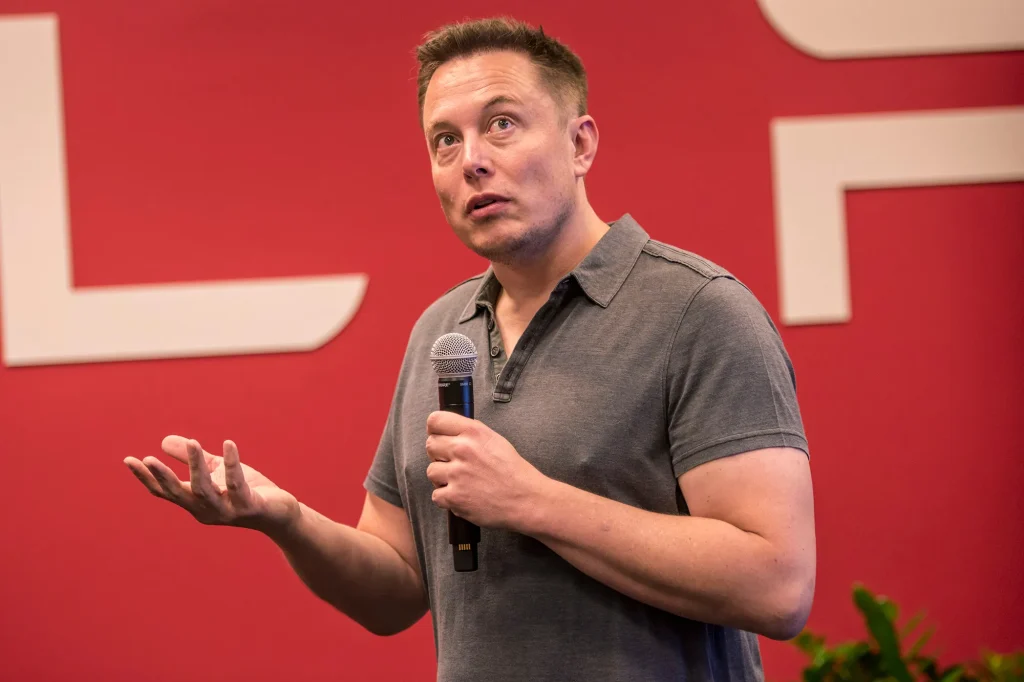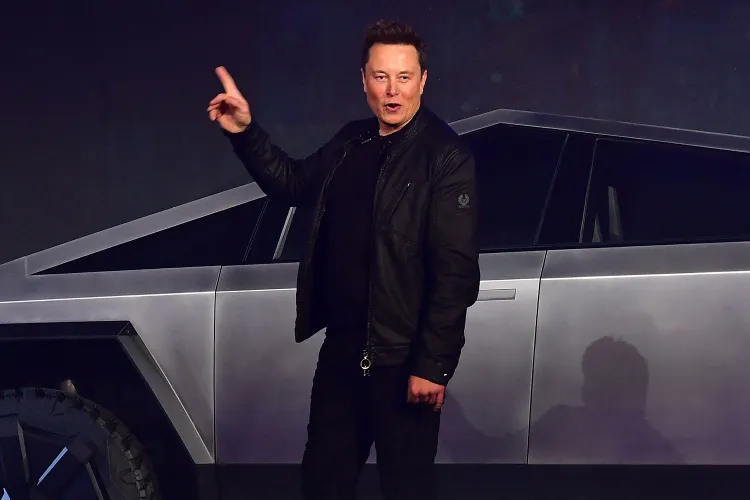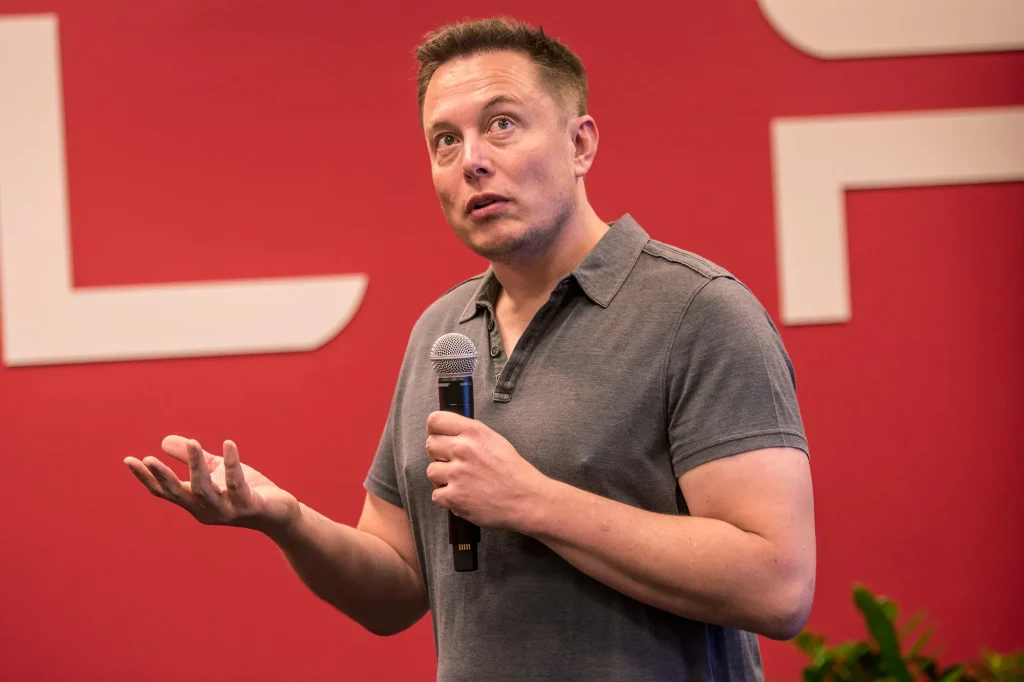After Tesla Shareholders Approve a Record-Breaking Pay Package, Elon Musk Is Officially on Track to Become the World’s First-Ever Trillionaire
Elon Musk has once again rewritten the rulebook of modern capitalism. Following a monumental shareholder vote this week, the Tesla CEO is now positioned to become the first person in history to achieve a trillion-dollar net worth — a milestone that cements his place as one of the most influential and controversial figures of the 21st century.

The shareholder decision, finalized during Tesla’s annual meeting in Austin, Texas, approved an unprecedented compensation plan valued at over $1 trillion. This package — the largest in corporate history — is tied directly to Tesla’s performance, meaning Musk will only unlock its full potential if the company reaches a staggering $8.5 trillion market capitalization. The decision followed months of heated debate, legal battles, and global scrutiny over what some investors and analysts have called both visionary and reckless.
Tesla’s board defended the package as a strategic move to keep Musk fully engaged with the company during what could be its most transformative decade. “This is not about greed,” Tesla Chair Robyn Denholm said before the vote. “It’s about ensuring Elon stays focused on building the future we all invested in — sustainable energy, robotics, and artificial intelligence.” More than 75 percent of shareholders agreed, voting in favor of reinstating the deal that had previously been struck down in court earlier this year.
If Tesla meets all of its targets under the plan, Musk would earn 12 separate tranches of stock options — each contingent on major performance milestones. Those milestones include exponential growth in vehicle deliveries, a massive expansion of Tesla’s energy division, and the commercial deployment of both its robotaxi fleet and humanoid robot project known as Optimus. The success of these ventures could push Tesla’s market value into territory once thought impossible for an automaker.
Analysts say the magnitude of the plan reflects not only Tesla’s ambitions but Musk’s unique role in shaping them. For two decades, he’s been the company’s driving force — guiding it from a struggling startup into the world’s most valuable car manufacturer. He’s also become a cultural figure whose influence stretches far beyond the business world, from space exploration through SpaceX to social media through his ownership of X (formerly Twitter).

Financial experts, however, remain divided. Some see the deal as a bold bet on innovation; others call it a dangerous precedent. “You can admire Elon’s vision while still questioning the scale of this reward,” said Dan Ives, a senior analyst at Wedbush Securities. “The optics of a trillion-dollar payout are extraordinary, especially in a time of economic uncertainty. But the market also knows one thing: Tesla without Musk is a completely different story.”
Not everyone agrees with that sentiment. Several institutional investors, including the Norwegian sovereign wealth fund — one of Tesla’s largest shareholders — voted against the plan, calling it “excessive” and “misaligned with long-term shareholder value.” They pointed to concerns over board independence and Musk’s divided attention across his other companies, including SpaceX, Neuralink, and The Boring Company.
Still, for Musk’s most loyal supporters, the outcome was a moment of triumph. Cheers erupted at Tesla’s headquarters after the vote passed, with many employees and investors calling it a victory for “vision over politics.” Musk himself posted a single word on X shortly after the announcement: “Victory.”
The implications extend far beyond Tesla’s balance sheet. With this vote, Musk is poised to redefine executive compensation on a scale the world has never seen. It also reignites ethical questions about wealth distribution, corporate power, and what it means when one man’s fortune could surpass the GDP of entire nations. Critics argue the deal underscores growing inequality between corporate elites and the average worker — especially given that the median Tesla employee salary is under $100,000.
Yet the company insists the plan is fair because it’s entirely performance-based. If Musk fails to deliver, he gets nothing. If he succeeds, the world changes. It’s a gamble both colossal and quintessentially Musk — a high-stakes bet on technology, human ambition, and the unrelenting belief that impossible goals can be achieved with enough willpower.
Economists also note that Musk’s path to a trillion dollars isn’t guaranteed. For him to reach that milestone, Tesla’s stock price would need to soar exponentially over the next decade, maintaining investor confidence amid fierce competition in the EV sector and increasing regulatory challenges worldwide. The rise of Chinese electric vehicle giants, ongoing supply chain disruptions, and fluctuating interest rates all pose significant hurdles.
Nonetheless, the company’s recent momentum has been undeniable. Tesla continues to expand globally, ramping up production at its Gigafactories and introducing new models like the next-generation Roadster and the long-awaited robotaxi platform. Meanwhile, Musk has hinted that Tesla’s next major leap could come through full-scale autonomous driving — a development that would revolutionize the auto industry and generate billions in recurring revenue.
For now, Musk’s potential trillionaire status remains hypothetical but increasingly plausible. According to Bloomberg’s Billionaires Index, his current net worth hovers near $470 billion — a figure already larger than the economies of many countries. Should Tesla’s ambitious projections materialize, Musk’s wealth could double and eventually triple within years.
Public reaction has been predictably polarized. Fans see him as a symbol of human progress — a once-in-a-generation visionary pushing civilization toward a sustainable, interplanetary future. Critics view him as a cautionary tale of unchecked corporate power. Social media lit up with both admiration and outrage following the announcement, with one trending comment reading, “Only Elon could make capitalism look like science fiction.”
The irony, of course, is that Musk’s potential trillion-dollar fortune remains largely theoretical. The majority of his wealth is tied to Tesla’s stock, meaning his paper net worth fluctuates wildly with market conditions. But whether or not he ever crosses the trillion mark, the symbolism of this moment — the idea that a single human being could accumulate such wealth through innovation alone — speaks volumes about how far technology and markets have come.
As one shareholder put it after the vote, “Elon isn’t just building cars; he’s building history.”
Whether the world views that history as inspiring or alarming will depend on what comes next. For Tesla, for investors, and for the future of capitalism itself, this may be the defining experiment of the decade — a story of ambition without limits and the cost of reaching beyond them.


